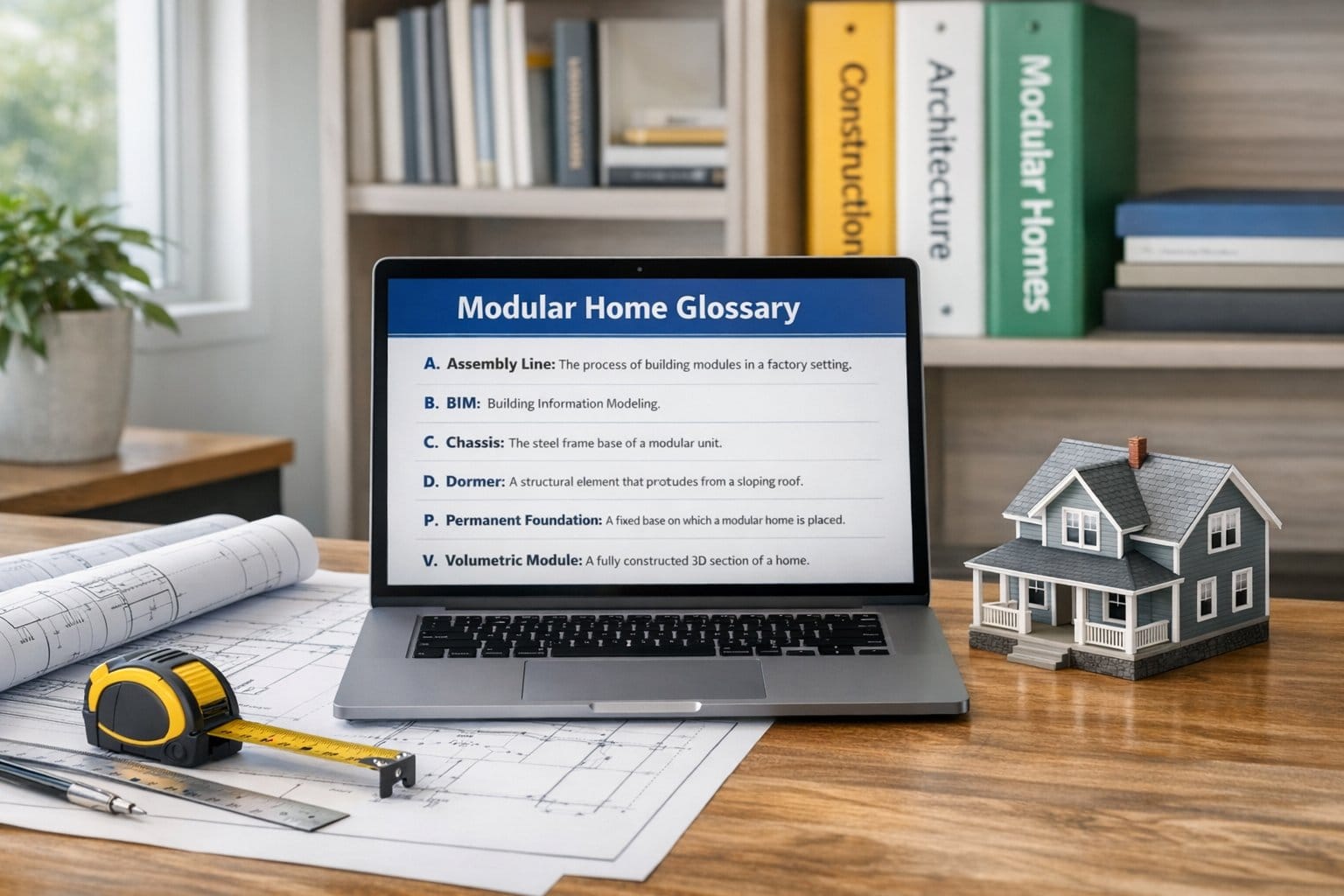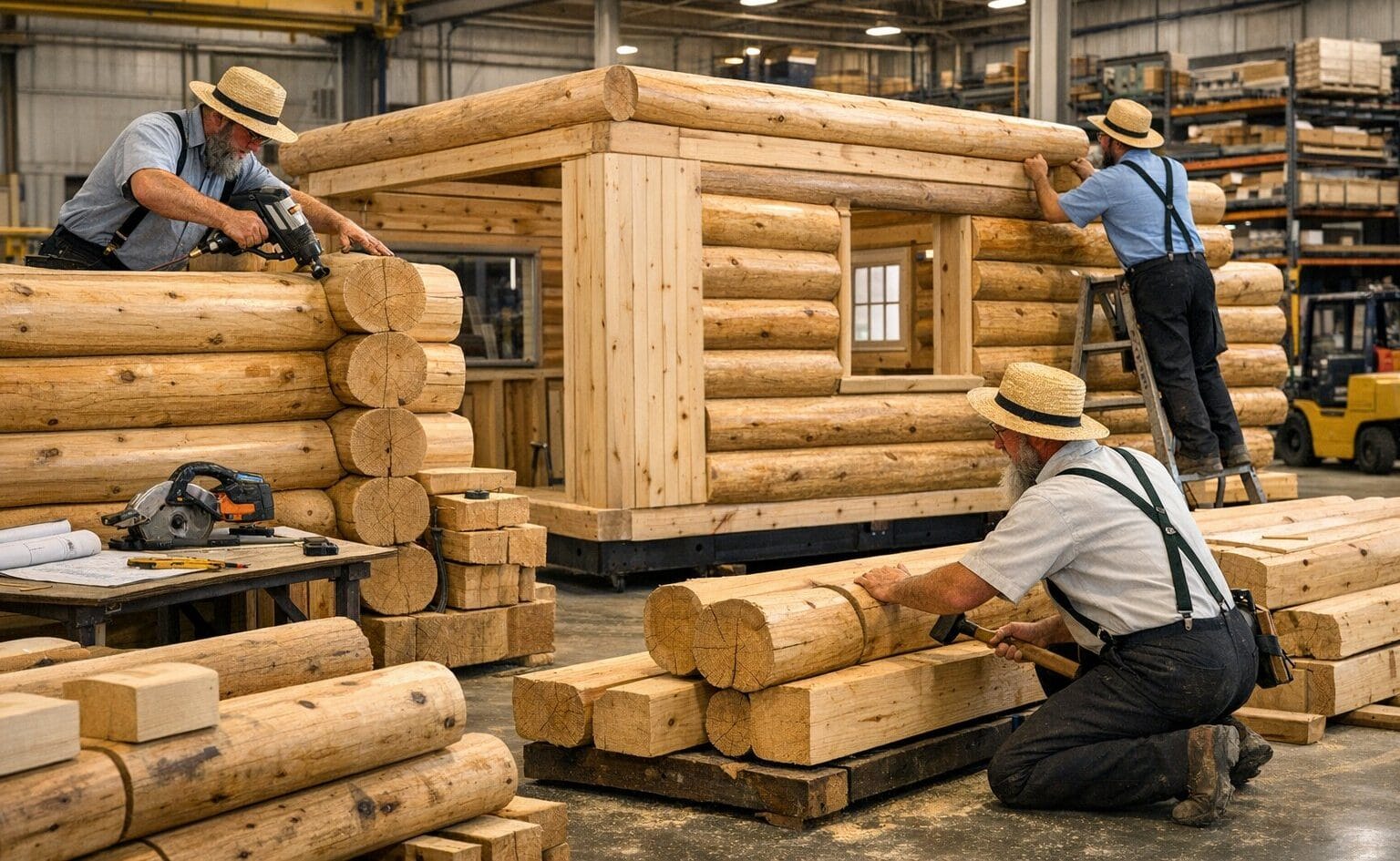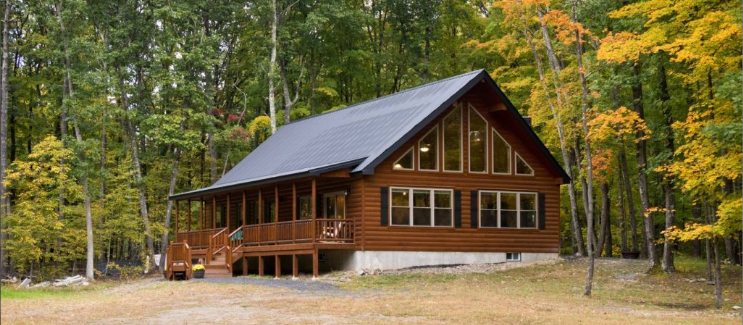As the 2024 presidential election approaches, industries across the country are poised for potential changes, and the modular home industry is no exception. With candidates presenting differing plans for economic policies, this sector may see shifts that could impact demand, pricing, and regulation. The election can influence modular home affordability and availability through changes in housing policies and economic strategies.

This period of political change can lead to shifts in the housing market, which might affect your interest in modular homes. Policies around taxation, homeownership incentives, and economic growth will play a role in shaping the future of the housing sector. The stance of political leaders on these matters could guide the regulatory landscape, potentially altering the costs and benefits associated with modular homes.
To understand the potential impacts, consider the key issues surrounding housing affordability and market dynamics. These considerations are critical when evaluating how the election results might influence your decisions and the industry’s direction.
Key Takeaways
- Elections may alter housing policies affecting modular homes.
- Economic strategies impact affordability and demand.
- Regulatory changes can influence pricing and market trends.
Impact of Presidential Elections on Economic Policies
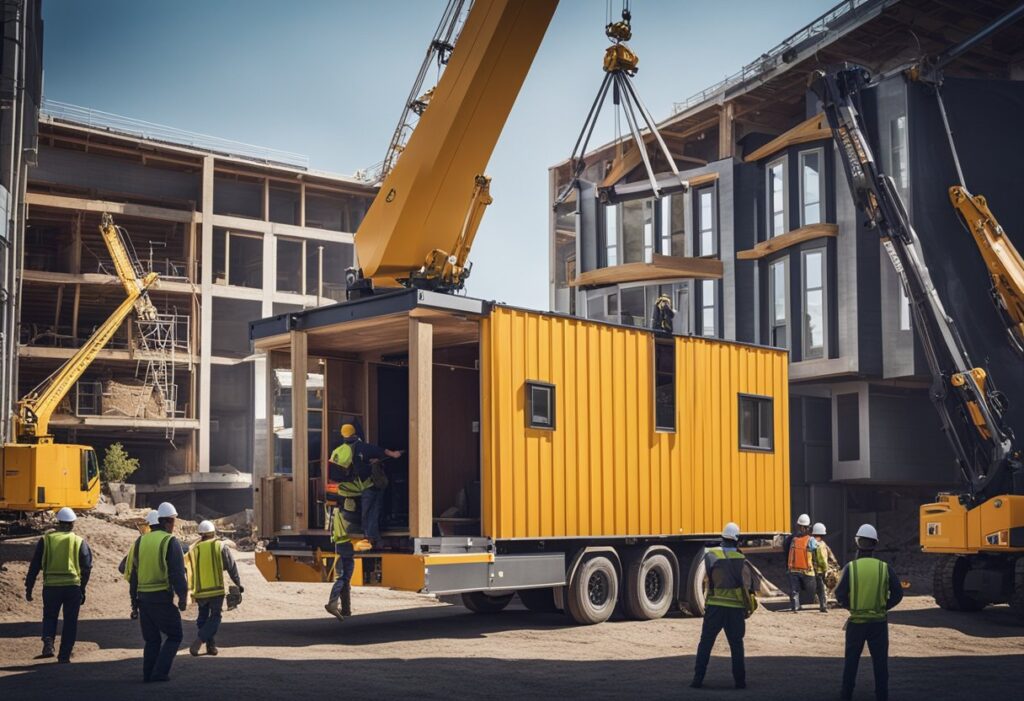
Presidential elections can lead to shifts in economic policies that affect various industries, including housing. Changes in tax reforms and housing policies are areas to watch closely. Understanding these shifts can help you navigate the impacts on the modular home industry.
Analysis of Proposed Housing Policies
During presidential elections, candidates often propose new housing policies. These can include incentives for affordable housing or changes in zoning regulations. Such policies might impact how modular homes are developed and sold.
For instance, if a candidate proposes easier access to housing loans, this could increase demand for modular homes. Conversely, stricter building codes might pose challenges. These proposals can significantly alter the housing market landscape, influencing costs and market entry barriers for modular home manufacturers.
Interplay Between Elections and Fiscal Policies
Fiscal policies are another key area affected by elections. Changes in tax policies and government spending can impact economic growth and housing markets. If a candidate supports tax incentives for homebuyers, it could boost the modular home industry by making purchases more affordable.
On the other hand, if government spending is reduced in housing sectors, it might limit funding for infrastructure, affecting the attractiveness of modular home developments. Understanding the interplay between fiscal policies and elections helps anticipate economic shifts and their potential impacts on your business decisions.
The Federal Reserve and Monetary Policy
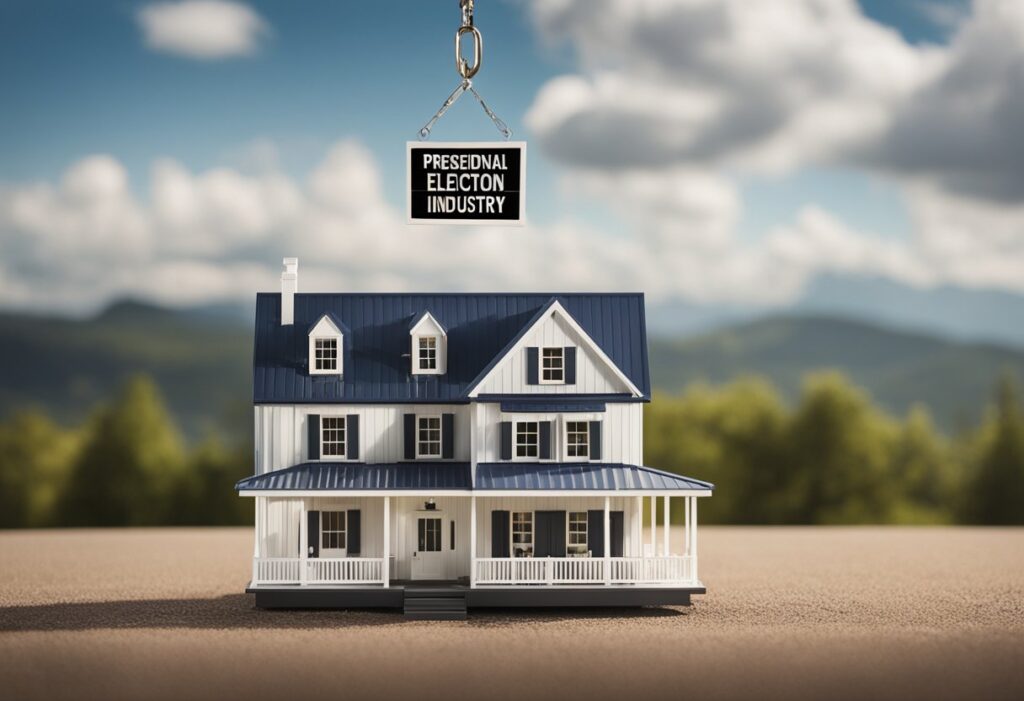
Monetary policy plays a pivotal role in shaping the economic landscape, especially during an election year. Understanding how changes in interest rates and quantitative tightening by the Federal Reserve can impact mortgage rates and the broader economy is crucial.
Interest Rates and Mortgage Rates Dynamics
The Federal Reserve influences interest rates, which in turn affect mortgage rates. When the Fed decides to cut rates, borrowing costs decrease. This can lead to lower mortgage rates and make buying modular homes more affordable. Lower rates may increase demand, boosting the modular home industry. Conversely, if the Fed raises rates, borrowing becomes more expensive, potentially slowing down home purchases. The Fed’s decisions during an election year can be particularly impactful as they try to balance economic growth without appearing politically influenced. For more context on the Fed’s actions during these times, visit J.P. Morgan’s insights.
Quantitative Tightening and its Effects
Quantitative tightening involves the Fed reducing its balance sheet by selling off securities or letting them mature. This process can lead to higher interest rates, as there is less money circulating in the economy. For the modular home industry, this might mean a tougher environment for financing. Higher rates could deter potential buyers, reducing demand. The Fed’s strategy in implementing quantitative tightening is often cautious, especially in an election year, to avoid economic disruptions.
Housing Market Trends and Predictions
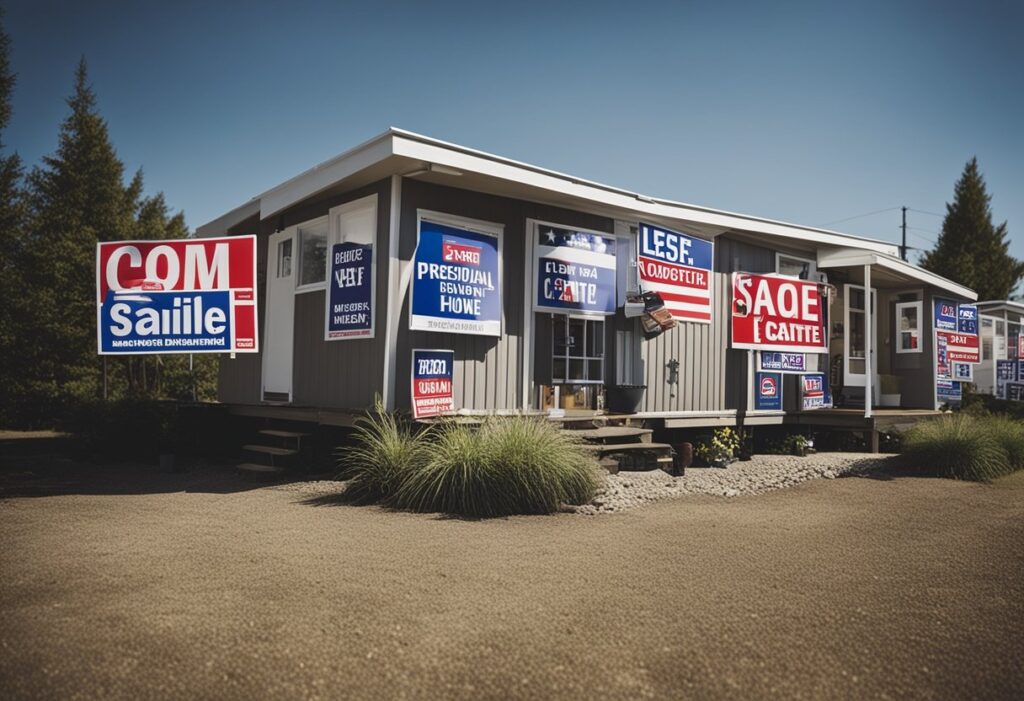
Election years can be uncertain times for the housing market. The effects of political cycles touch areas like market activity and home prices. Understanding these can help you navigate the modular home industry better.
Influence of Election Cycles
Election cycles often bring changes in the housing market. In an election year, many people become cautious, leading to a dip in consumer confidence. This can make buyers and sellers hesitant to make big decisions.
Market activity may slow down because of this uncertainty. It isn’t uncommon for some potential buyers to delay their plans until the political climate is clearer. Even home builders might change their levels of activity during these times.
This pause can offer a chance for those who stay active in the market to find better deals. Watching how the election develops can help you adjust your strategies accordingly.
Presidential Impact on Home Prices
Presidential elections don’t always lead to a huge change in home prices, but they can create short-term fluctuations. Some studies indicate that prices rise by an average of about 4.5% during election years.
These shifts are often small and short-lived. Still, being aware of these patterns can be useful for decisions involving buying or selling modular homes.
Policy proposals from presidential candidates may also affect market expectations. These proposals can impact areas like mortgage rates and housing affordability. Keeping an eye on these factors can help you make informed choices throughout the election period.
Affordability and Homeownership
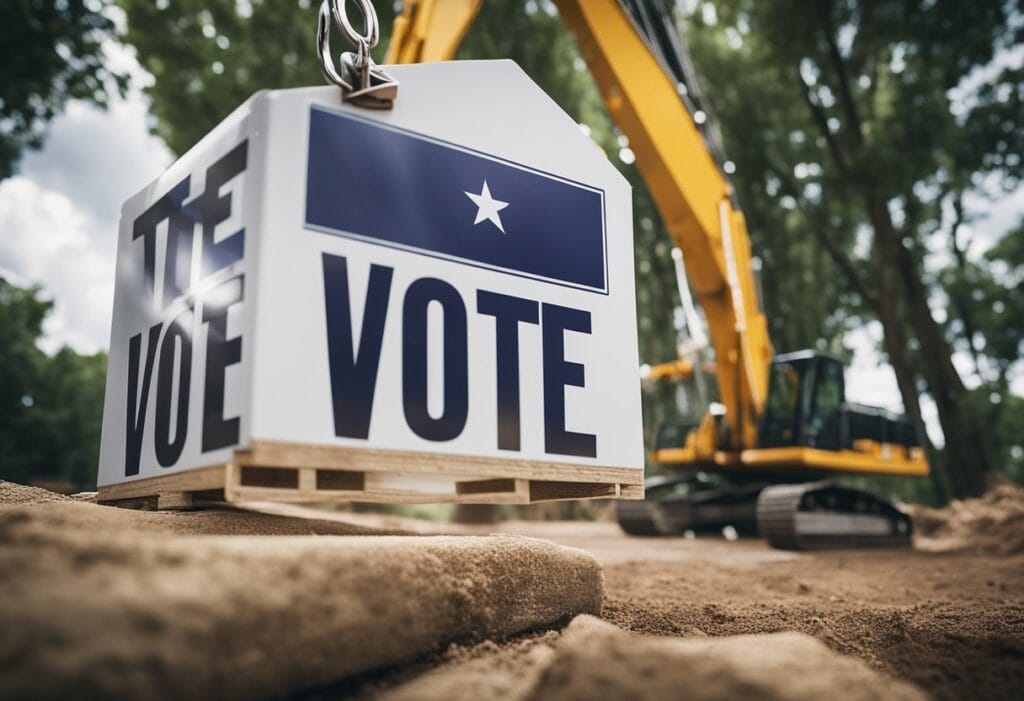
The presidential election could influence housing affordability through proposals that aim to make homeownership more accessible. These initiatives might include efforts to address the affordability crisis and provide financial programs for homebuyers.
Addressing the Affordability Crisis
Affordable housing continues to be a challenging issue. Rising costs make it difficult for many to buy homes. The role of modular homes could become significant as they offer a lower-cost alternative. Modular homes are often cheaper and quicker to build, which can help reduce expenses.
Efforts to control rising housing prices are crucial. Potential approaches include increasing the supply of affordable housing and stabilizing mortgage interest rates. By reducing construction costs and offering incentives for affordable housing development, leaders can help make housing more affordable for many people.
Programs and Assistance for Homebuyers
Down payment assistance programs can be vital for first-time homebuyers. These programs help reduce the initial financial burden. Federal and state governments may offer initiatives that provide grants, loans, or tax credits.
You might explore options like first-time homebuyer programs that lower entry barriers to homeownership. These can be paired with financial education to aid in budgeting and managing new expenses. Access to these resources can empower buyers to find suitable and affordable homes, potentially boosting ownership rates.
Regulatory Changes and Housing Supply
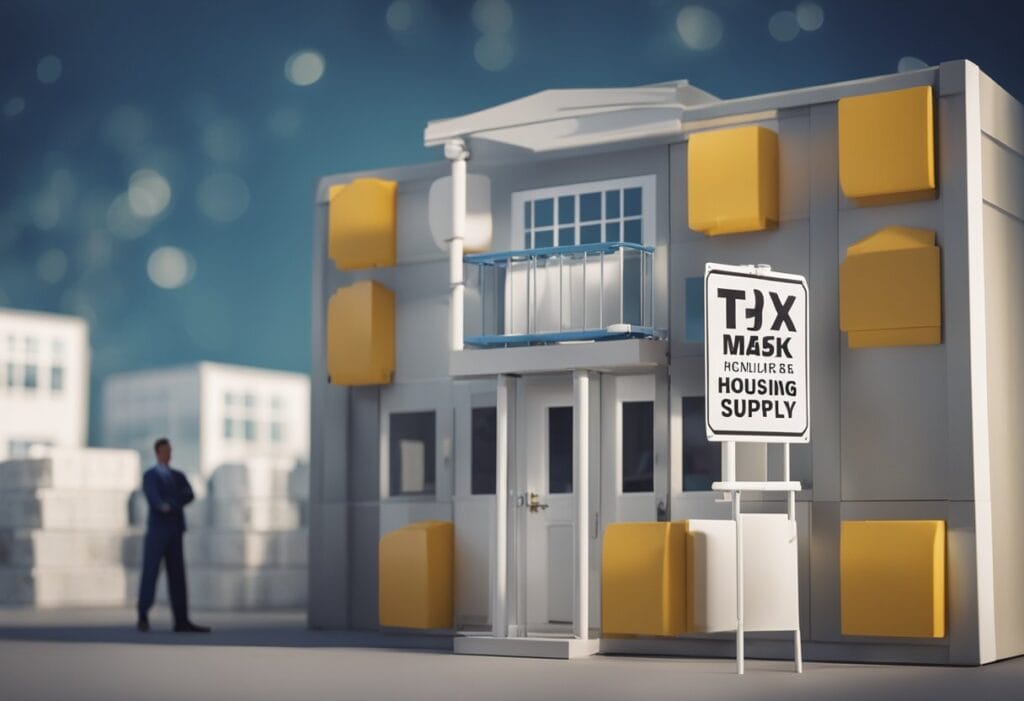
Upcoming elections could influence the housing market through zoning reforms and building regulations. These changes can significantly impact the supply and development of modular homes.
Zoning Reforms and Their Impact on Supply
Zoning laws often control the types of homes built in specific areas. Changes in these laws can increase the housing supply by allowing more types of housing, like modular homes, in areas traditionally reserved for single-family homes.
Candidates might support reforms that promote higher-density building. This can lead to more efficient land use and potentially lower housing costs. By revising single-family zoning, more modular homes could be approved, addressing housing shortages. Understanding candidate positions on zoning reforms is crucial, as these decisions may directly affect your options and investments in modular homes.
Building Regulations and Modular Homes
Building regulations can greatly impact the modular home industry. Changing rules can streamline the process, making modular homes more attractive due to their quicker construction times and reduced costs. When candidates propose less restrictive building regulations, modular homes could become more feasible.
Regulatory adjustments might focus on safety and quality standards while simplifying approval processes. This can help maintain high standards without unnecessary delays. You should pay close attention to how proposed regulations might support or hinder modular home developments. This insight can help you make informed decisions about potential investments and living spaces in the modular home sector, ensuring more opportunities arise in the industry.
Investor Perspectives and Market Sentiment
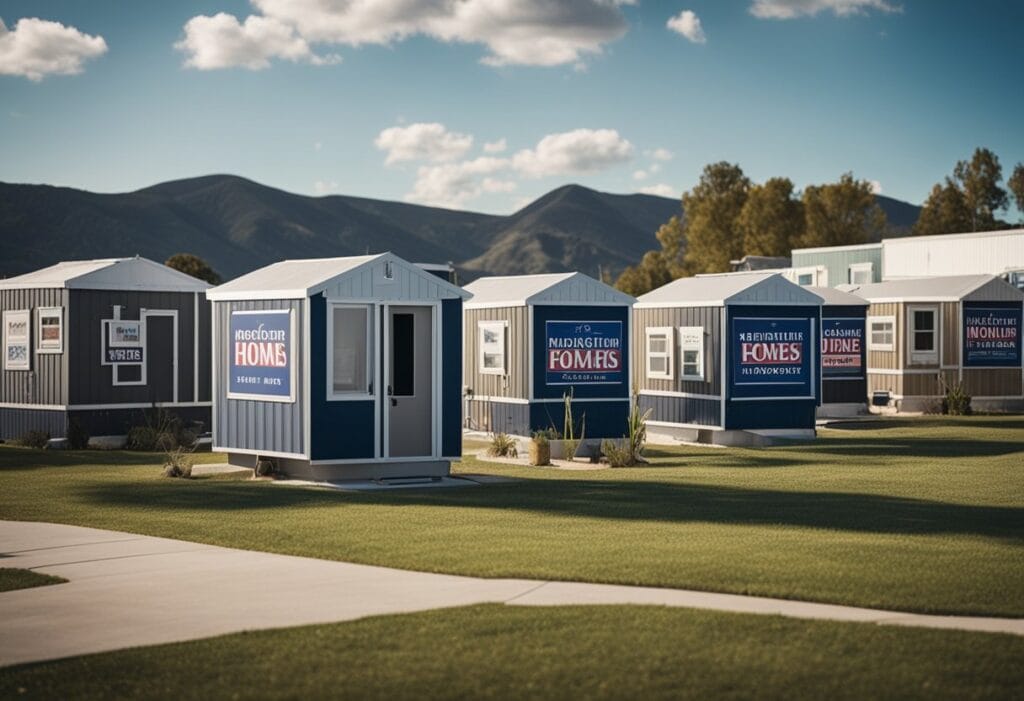
As the presidential election approaches, you might wonder how it will impact investor confidence and the market reactions in the modular home industry. These changes can influence financial decisions, particularly within real estate investments.
Presidential Impact on Investor Confidence
Investor sentiment often shifts during election seasons. You may notice that some real estate investors are cautious due to potential policy changes affecting commercial real estate. These policies can include tax laws or environmental regulations, which may impact the costs and benefits of modular home investments.
While historical data shows that elections do not always have long-term effects on markets, short-term volatility can still impact investor choices. You might be wary of changes until the political atmosphere stabilizes, potentially delaying decisions on real estate investments.
Market Reactions to Election Outcomes
Election results can lead to immediate market reactions. Investors may adjust their portfolios based on anticipated policy changes. For real estate investors, this could mean reevaluating positions in sectors affected by new leadership priorities.
For example, a new administration might prioritize housing affordability, impacting the demand for modular homes. Market sentiment often reflects these expectations, causing shifts in real estate valuations. You should stay informed and consult professionals to navigate these changes.
A stable market response often follows once the initial uncertainty fades, providing clearer insights into future regulations. As an investor, understanding these patterns can help you make informed financial decisions in the modular home industry.
Inflation and Its Effect on the Housing Sector

Inflation is a significant factor affecting housing costs and shelter costs. It influences how much you will spend on a place to live and how the market reacts.
Strategies to Combat Inflation in Housing
To manage inflation, several strategies can be applied. One approach is increasing the supply of affordable homes. When more units are available, it often stabilizes prices. Additionally, subsidies can help lower-income families cope with rising shelter costs.
Another strategy involves regulating rent increases. By capping how much rents can rise, you can maintain affordability in high-demand areas. Investing in modular homes can also help, as they are generally more cost-effective to build and can be completed faster than traditional homes.
Presidential Role in Stabilizing Prices
The president plays a crucial role in influencing housing prices. Policies that boost affordable housing supply, such as tax incentives for builders, can help control inflation. Presidential candidates often propose housing plans that address inflation concerns. These plans might include federal funding for housing projects or policies to encourage home ownership.
Interest rate adjustments are another tool. A president’s economic strategy often involves collaboration with the Federal Reserve to manage interest rates, impacting mortgage rates and, consequently, home prices. Addressing inflation effectively requires coordinated efforts across different levels of government and the private sector.
Rental Market Dynamics
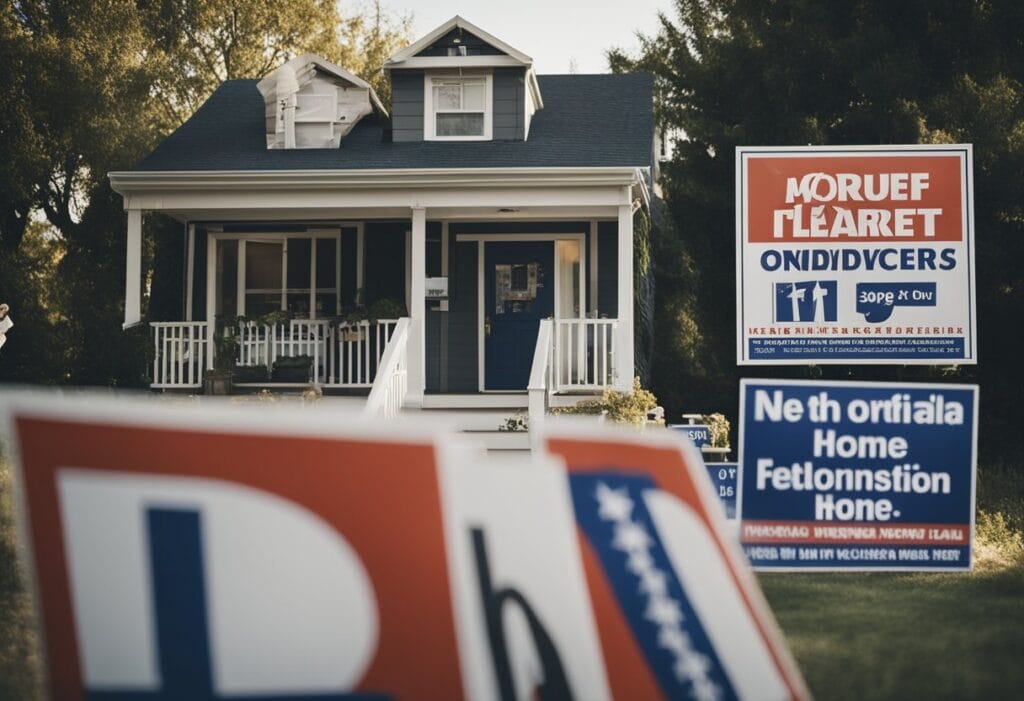
The presidential election can shape the rental market, affecting factors like rental prices and policies impacting multifamily housing. Rent control measures and rental assistance programs also play significant roles in determining market dynamics.
Challenges in Multifamily Housing
The multifamily housing sector faces unique challenges during election years. Policy shifts and potential new regulations create uncertainty for builders and investors. If the election outcome indicates a pivot in housing policy, developers may pause projects, leading to limited supply. You might notice rental prices fluctuate due to this unpredictability.
Investors often adopt a cautious approach, impacting funding availability for new developments. As the government debates rental assistance and affordability measures, these discussions can directly influence market stability and future projects. Multifamily housing stakeholders need to stay informed about policy discussions to navigate potential challenges.
Implications of Rent Control Measures
Rent control remains a contentious issue, with significant implications for both tenants and landlords. If new rent control legislation is introduced during the election year, rental prices might stabilize or even decrease for some, providing relief to tenants. However, landlords could face profit limitations, possibly leading to a reduction in property maintenance and investment appeal.
You might see a shift in how landlords approach long-term leases versus short-term rentals. When governments propose or implement rent control, it can deter new players from entering the rental market, influencing overall housing availability. Understanding these policies is crucial for anyone involved in the rental market, as they directly affect investment decisions and rental dynamics.
Taxation and Real Estate Investments

When it comes to the modular home industry, taxation plays a crucial role. Potential changes in tax policy can impact capital gains taxes and 1031 exchanges. These factors might influence housing costs and the broader economic health of the real estate market. Understanding these impacts can help you make informed decisions about investments in modular homes.
Capital Gains Taxes and 1031 Exchanges
Capital gains taxes are applicable when you sell a property for a profit. If you’re investing in modular homes, the profits from selling these homes can lead to a significant tax bill. However, the 1031 exchange offers a potential solution. This provision allows you to defer these taxes by reinvesting the proceeds into a similar property.
This can be particularly attractive if you’re looking to expand your investments in modular housing. The 1031 exchange can help maintain cash flow and reduce taxable income, which might otherwise limit your ability to grow your portfolio. Being aware of how potential tax reforms may alter these exchanges is critical for long-term planning.
Election Outcomes and Tax Policy for Homebuyers
Election outcomes can lead to shifts in tax policy, impacting homebuyers in the modular home market. Changes in tax deductions or credits could alter the attractiveness of buying modular homes. For example, adjustments to mortgage interest deductions could change the financial calculation for buyers.
Keeping an eye on potential tax policy changes allows you to better forecast housing costs. Such changes may also affect the overall economic health of real estate investments. For investors and homebuyers, adapting to new tax regulations means better planning and potential savings in the modular home sector.
The Role of Uncertainty in the Housing and Construction Sectors
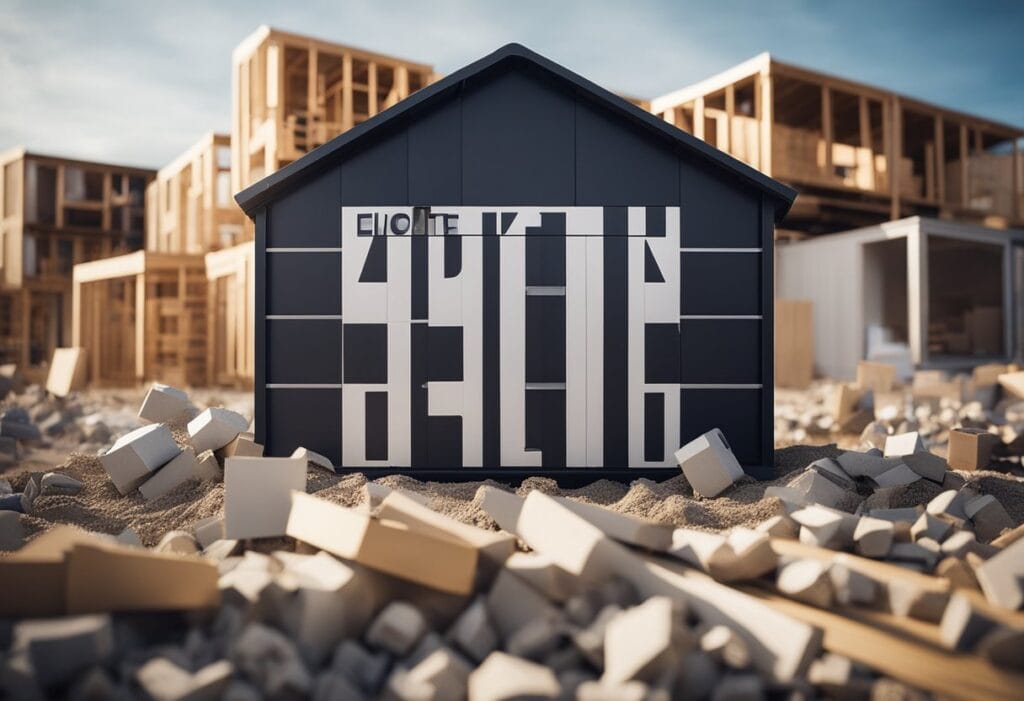
Uncertainty in presidential election years can affect the housing and construction sectors. These impacts are particularly noticeable in construction delays and the strategies manufacturers adopt to mitigate risk.
Economic Uncertainty and Construction Delays
During election years, economic uncertainty can lead to construction delays. Homebuyers often become hesitant, waiting for more stability before making significant investments. This hesitation can decrease demand and lead to increased inventory.
Policy changes that may occur with a new administration can affect zoning laws, taxes, and building regulations. These changes can also slow down project timelines. For the modular home industry, any delay in policy decisions can be crucial as it affects timelines and budgeting.
Developers may slow down or pause new projects due to uncertain market conditions. Such a cautious approach affects not just completing individual homes, but also broader industry trends, impacting home availability.
Risk Management for Modular Home Manufacturers
Modular home manufacturers must adopt strategies to manage uncertainty. They often explore flexible production timelines to navigate potential disruptions. Flexibility in supply chain management is another critical strategy. This helps maintain steady production despite fluctuating demand or inventory challenges.
Manufacturers might adjust their business strategies to account for potential policy changes. They need to stay informed about potential shifts in tax laws, tariffs, or housing-related regulations. This proactive approach can minimize risks.
Another essential tactic for risk management involves enhancing communication with suppliers and buyers. By keeping transparent channels, manufacturers can better prepare for unexpected shifts. Adopting these precautionary measures ensures that any disruptions do not heavily impact their operations or financial planning.
Presidential Candidates and Their Stances

The presidential election features Donald Trump and Kamala Harris, each with distinct perspectives on the housing industry. Their policies could significantly influence the modular home sector in the coming years.
Donald Trump and Housing Industry
Under Donald Trump’s previous administration, housing policies focused on deregulation, which aimed to boost construction and reduce costs. Trump’s stance often favored reducing federal oversight to encourage private sector investment, hoping to drive growth in industries like modular homes.
Trump has criticized overregulation, claiming it hampers economic progress. While specific modular housing plans have not been detailed, his general approach could lead to less stringent building codes and permit processes, potentially benefiting modular home builders.
On the campaign trail, Trump has highlighted the importance of job creation in the housing sector. You can expect this to resonate with voters looking for economic growth through real estate and construction.
Kamala Harris’ Housing Initiatives
Kamala Harris, as a representative of the Biden administration, has prioritized affordable housing. Harris has advocated for policies that aim to increase access to housing through initiatives promoting rent relief and affordable homeownership. Under her leadership, housing initiatives could emphasize support for low and middle-income families.
Harris has proposed significant investment in infrastructure, which could include modular homes as a sustainable and cost-effective housing solution. Her plans highlight reducing homelessness and improving living conditions across cities.
Harris’ focus on affordable housing may lead to more funding or subsidies for modular home development. This could encourage innovation and make modular options more accessible to a wider audience, promoting equitable housing opportunities.
Frequently Asked Questions

The presidential election can have significant impacts on the modular home industry. New policies could affect regulations, tariffs, funding, and zoning laws. You may find that these changes influence manufacturing processes and investor confidence in the sector.
What are the potential effects of new presidential policies on the modular housing sector?
Presidential policies can create shifts in priorities that directly impact the modular housing sector. These changes might involve adjustments in tax incentives or infrastructure spending that could either promote or challenge the growth of modular housing projects.
How could changes in the federal housing regulations influence modular home manufacturing?
Federal housing regulations play a crucial role in manufacturing standards. New legislation may introduce changes in safety standards or environmental guidelines, which could require manufacturers to adapt their practices, sometimes increasing costs or necessitating new technologies.
In what ways might the outcomes of the presidential election affect construction material tariffs relevant to the modular home industry?
The presidential election could influence tariff policies on construction materials. If new tariffs are introduced or existing ones modified, the cost and availability of materials like steel and timber used in modular homes could be affected, impacting overall production costs.
Can shifts in the executive branch leadership impact federal funding for affordable housing projects, including modular homes?
Changes in leadership can alter the focus of federal funding programs. Increased support for affordable housing projects may include incentives for modular home construction, making it a more attractive option for developers looking to create cost-effective housing solutions.
How do presidential elections typically influence investor confidence in the building and construction industries?
Presidential elections can create economic uncertainty, affecting investor confidence. Investors may hold back on funding new projects until after the election, when policies become clearer. Stability post-election often encourages renewed investments, depending on policy directions.
What role do presidential election results play in determining zoning laws that could affect modular home development?
While zoning laws are typically determined at local levels, presidential election outcomes can influence federal policy directions that affect local decision-making. Shifts in federal emphasis on housing priorities might lead to changes in local zoning practices, impacting modular home development opportunities.

